Posts Tagged "smart cities collaborative"
COVID-19 threw a curveball at curb management. Here’s how cities adapted.
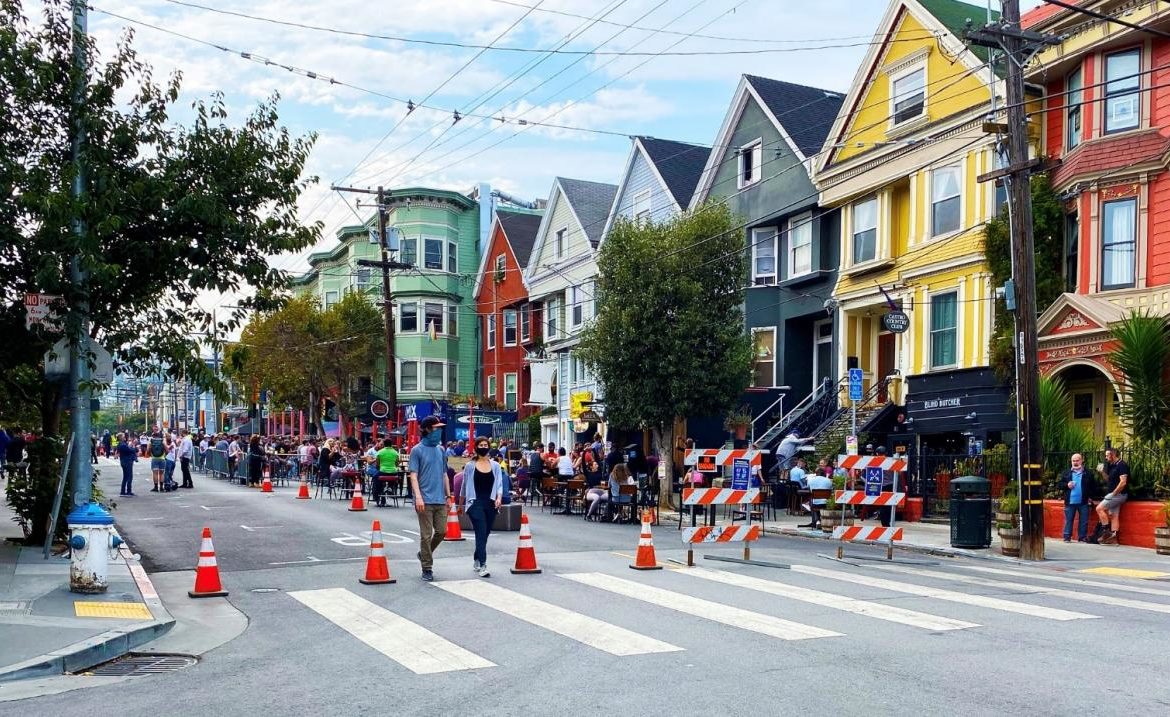
Transportation for America’s 2020 cohort of the Smart Cities Collaborative was always meant to focus on curbside management. But then came COVID-19, radically shifting all aspects of our lives—including how we use curbs. Our new report, COVID and the Curb, explores how cities adapted their curb management strategies to support public health and small businesses, and ideas for better curb policy at the local, state, and federal levels.
Cities’ priorities must be the heart of any universal curb standard. These 5 principles pave the way.
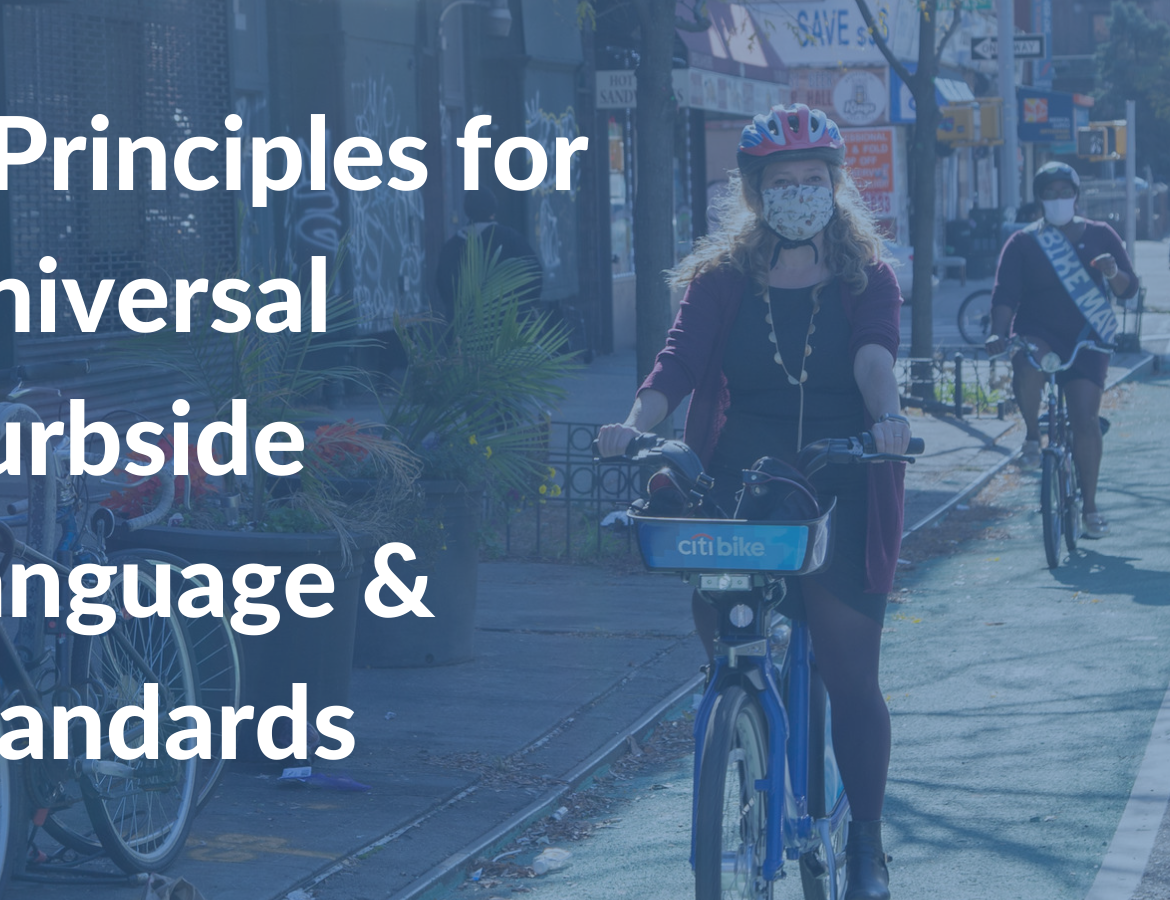
ities and towns face a massive hurdle to managing their curb space: the lack of a uniform way to define the curb and its users. Without a universal curb standard, it’s difficult for local governments to coordinate with each other and private entities and assess the effectiveness of their curbside management policies. Participants in our Smart Cities Collaborative joined together to develop five principles that should inform any universal curbside language and standards.
If we want equitable smart cities, we need support from philanthropy
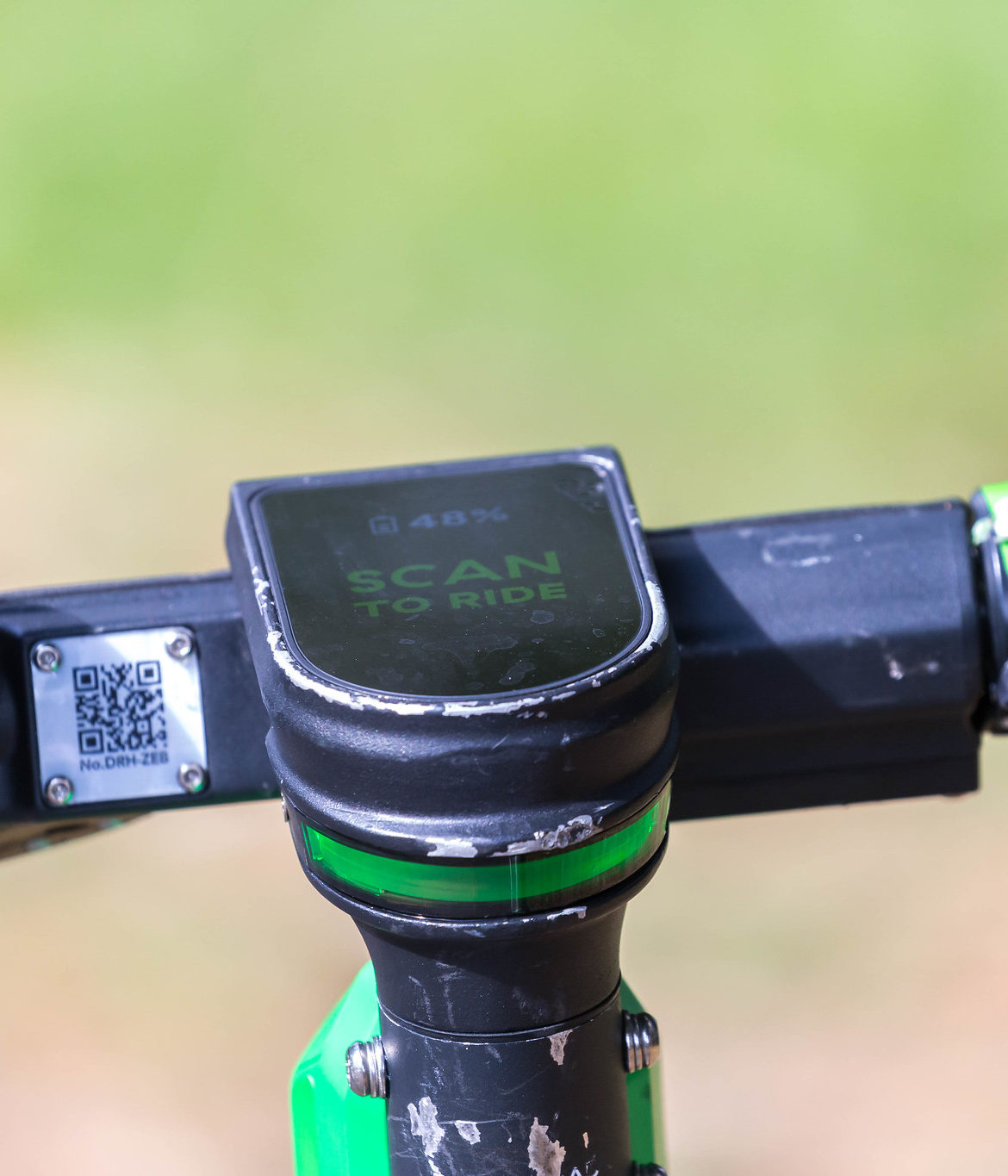
Everyone agrees that smart cities—places that deploy technology to deliver government services and improve quality of life—are the future. City leaders and staff are inundated with these new mobility products but have limited capacity to ensure that they are deployed in ways that lead to equitable and sustainable outcomes. Our director Beth Osborne explains why cities, states, and non-profit actors need philanthropic support to pursue policy research and projects that make equitable, sustainable smart cities a reality.
Curbside management in a recurring emergency scenario: A municipal perspective
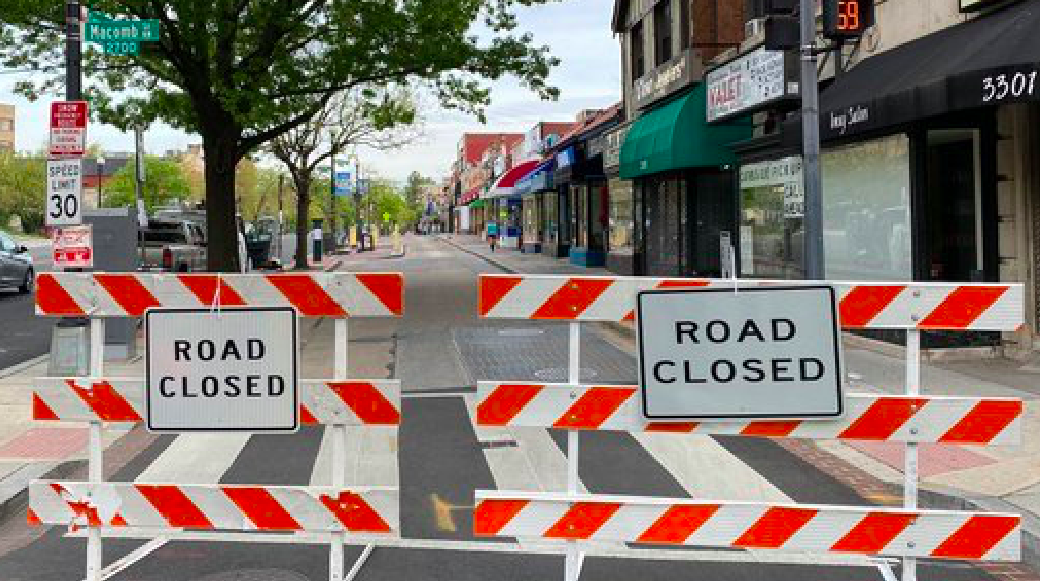
This post is part of a special series on curb management and COVID-19. A joint effort of IPMI, Transportation for America, and ITE’s Complete Streets Council, this series strives to document the immediate curbside-related actions and responses to COVID-19, as well as create a knowledge base of strategies that communities can use to manage the curbside during future emergencies.
The parking and mobility industry comes together in a time of need. Here’s how.
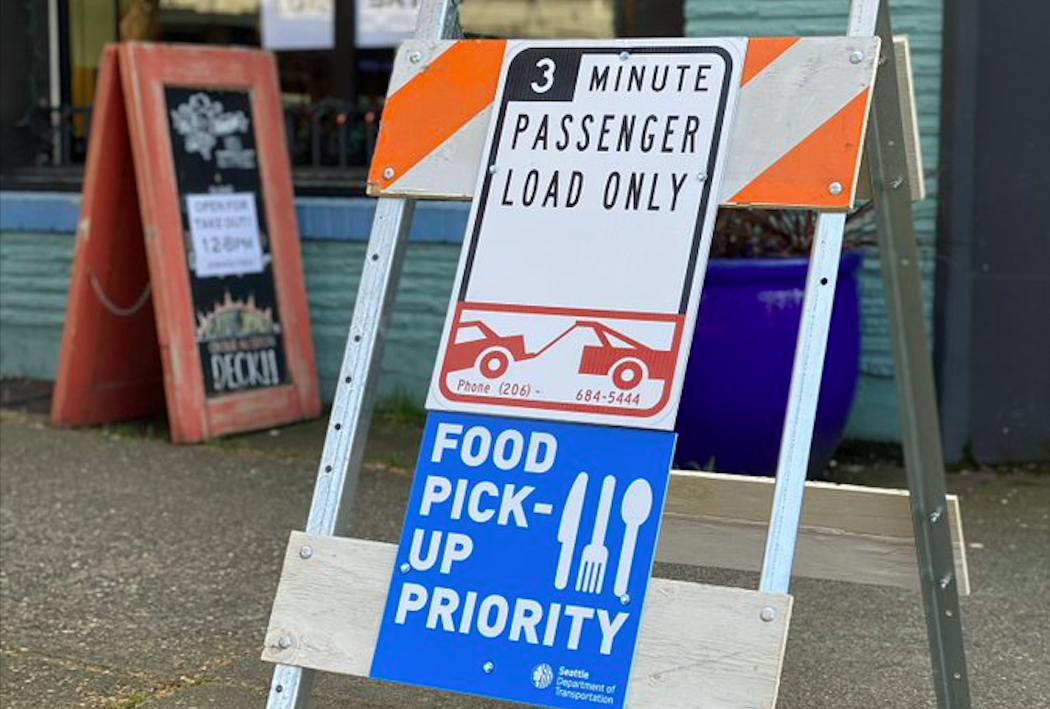
As communities enacted new policies to protect citizens by minimizing the spread of the coronavirus, their parking and mobility programs adapted curb management and parking policies to address emerging priorities.
Transportation is changing, but curbs are not: Lessons from the first Smart Cities Collaborative 2020 meeting

The third year of the Smart Cities Collaborative is off to a strong start. Last week, Transportation for America brought together the three pilot cities in the Collaborative to work through devising and designing strong curbside management pilots.
T4America selects 3 cities to launch curbside management pilots
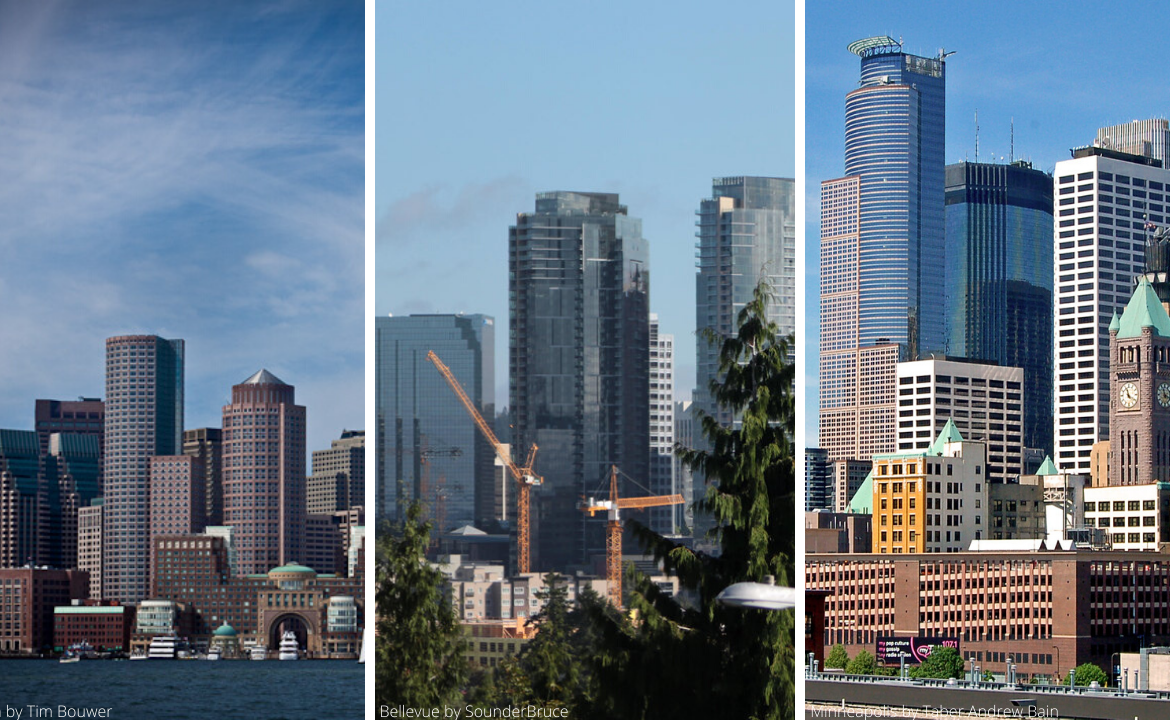
Transportation for America (T4America) is thrilled to announce that it has awarded three cities with funding and support to complete curbside management pilot projects. The three cities are Bellevue, WA; Boston, MA; and Minneapolis, MN.
The best thing about the Smart Cities Collaborative is the peer-learning, says Oakland’s Warren Logan

Next January marks the third cohort for T4America’s Smart Cities Collaborative. This time around, a steering committee of former Collaborative members is helping us shape the program. Warren Logan, the Policy Director of Mobility and Interagency Relations at Oakland Mayor’s Office, talked with us about what makes the Smart Cities Collaborative so valuable to city officials.
Walking through questions about our new Playbook for Shared Micromobility
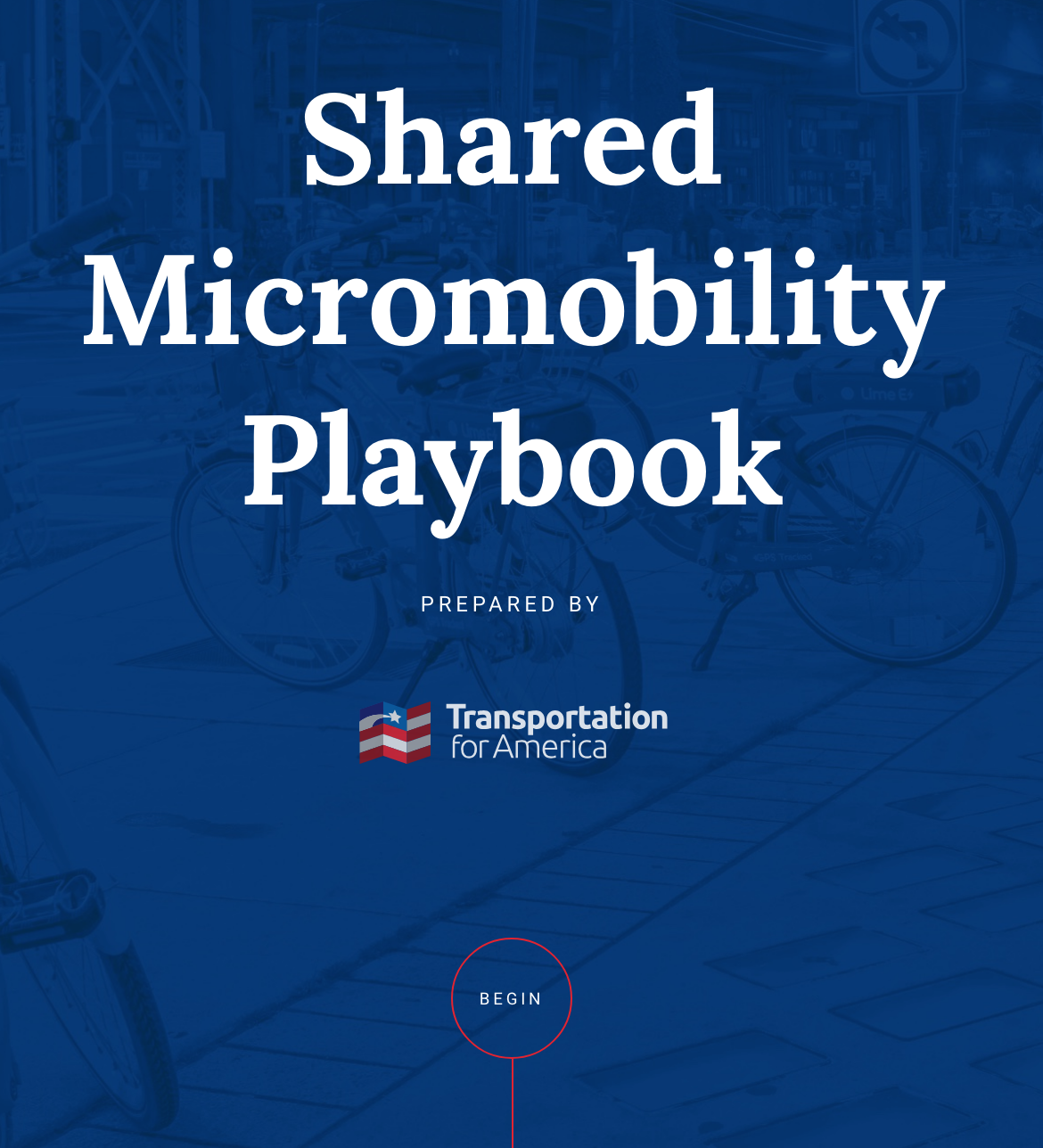
With the help of representatives from two cities, T4America staff a few weeks ago walked through our new Playbook for effectively managing shared micromobility services like dockless bikes, electric scooters, and other new technologies.
T4America’s new “playbook” provides an evolving guide for how cities can manage shared micromobility services

Produced in collaboration with 23 cities, Transportation for America today released a new “Playbook” to help cities think about how to best manage shared micromobility services like dockless bikes, electric scooters, and other new technologies that are rapidly being deployed in cities across the country.
Seven things to know about our last Smart Cities Collaborative meeting of 2018

Last week in Atlanta, Georgia we wrapped up our second cohort of the Smart Cities Collaborative with the fourth meeting of 2018. Once again, staff representing cities, counties, transit agencies and other public sector agencies from 24 cities gathered together to share their experiences and learn how others are using technology and new mobility to become better places to live.
“Deciding what kind of city we want to be” with the Smart Cities Collaborative

While fighting to stay ahead of a transportation and mobility landscape that changes by the day, 70+ people representing 23 cities gathered in Pittsburgh last week for the third meeting of our Smart Cities Collaborative to band together to solve problems and learn from each other.
Focusing on the positives of dockless bikes and scooters
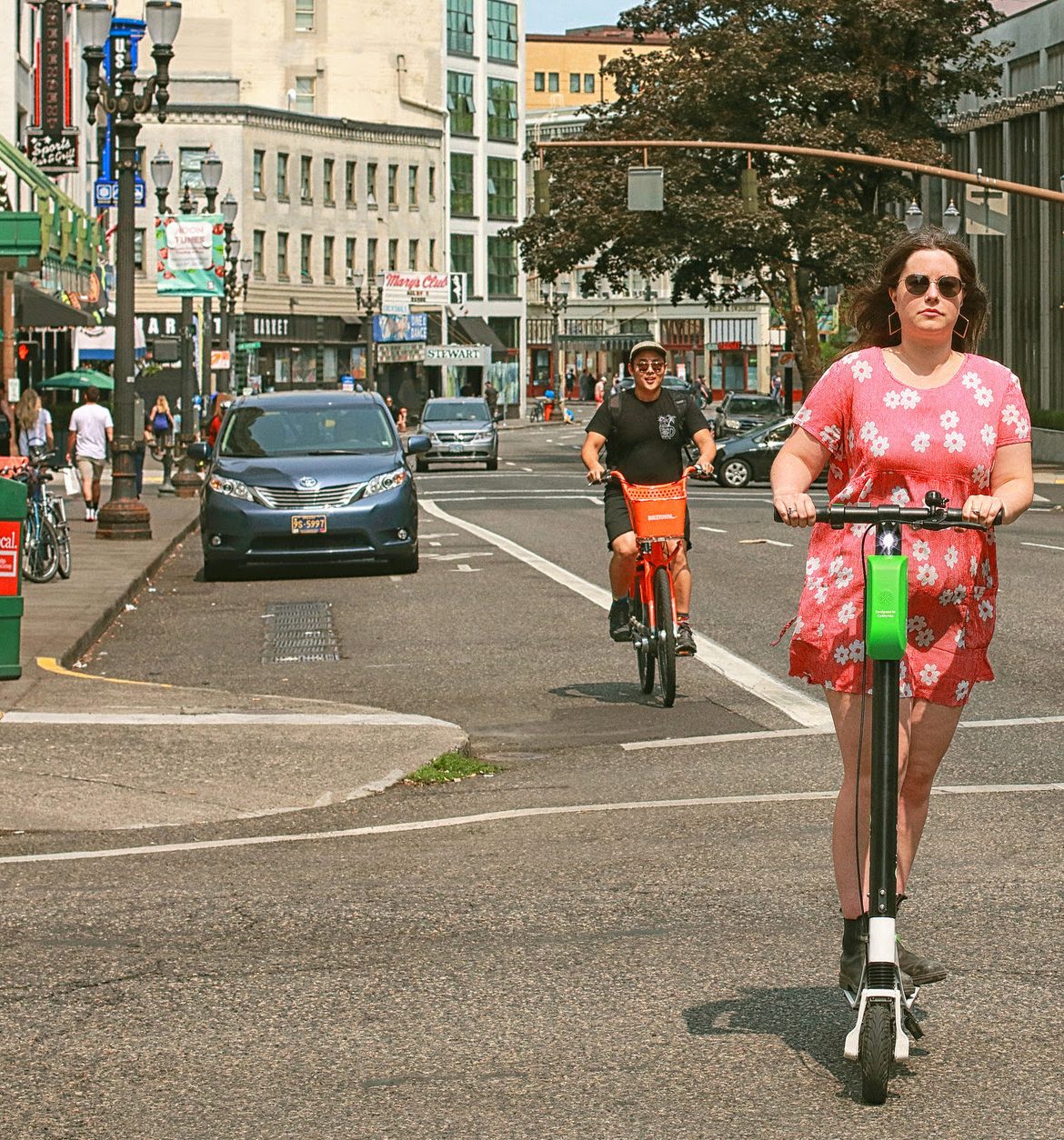
Cities are quickly passing policies to manage the influx of dockless bike share and scooters in their communities. How can they craft policies to achieve the outcomes they want, rather than simply avoiding the ones they don’t? We’re more than halfway through 2018 and shared active transportation services such as dockless bike share and stand […]
Moving from theory to practice with the Smart Cities Collaborative
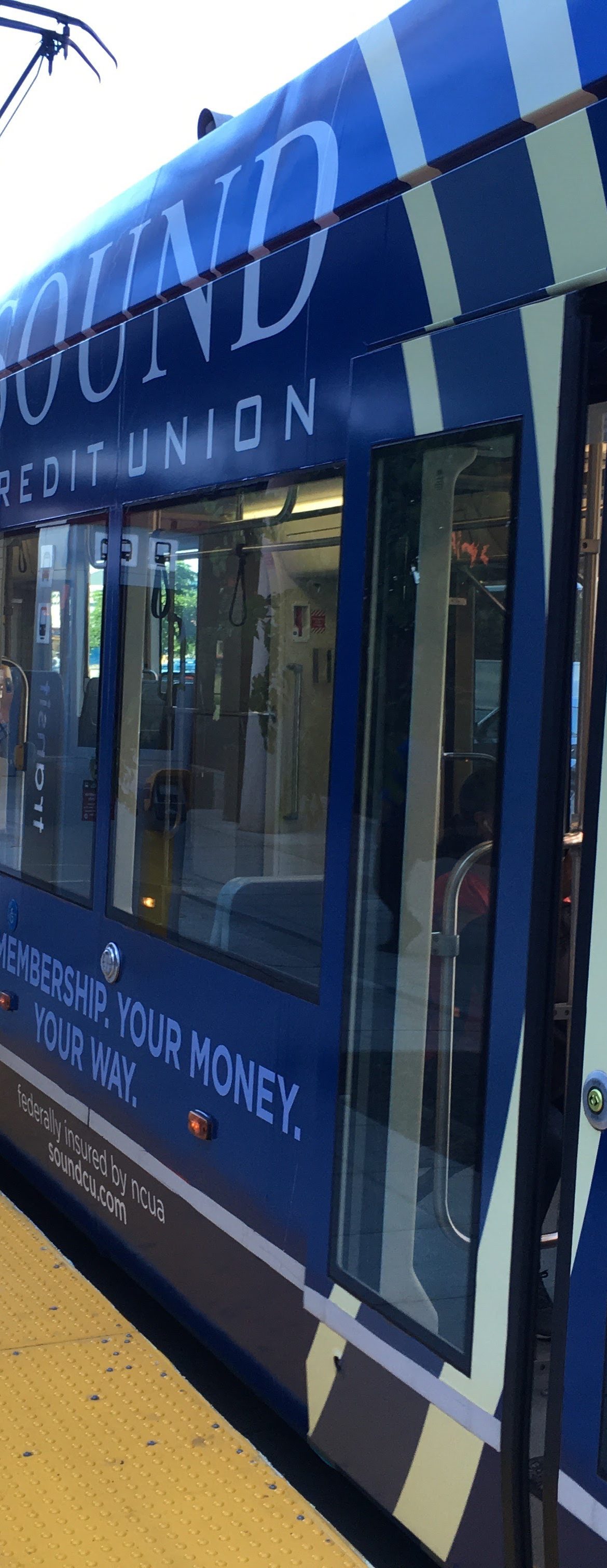
Many of the 24 cities in our Smart Cities Collaborative are currently knee-deep in pilot projects or a flood of new mobility services. Their direct and ongoing experiences helped shift the conversation from theory to practice during a two-day meeting of the Collaborative in Seattle last week.
Using new mobility models to increase access
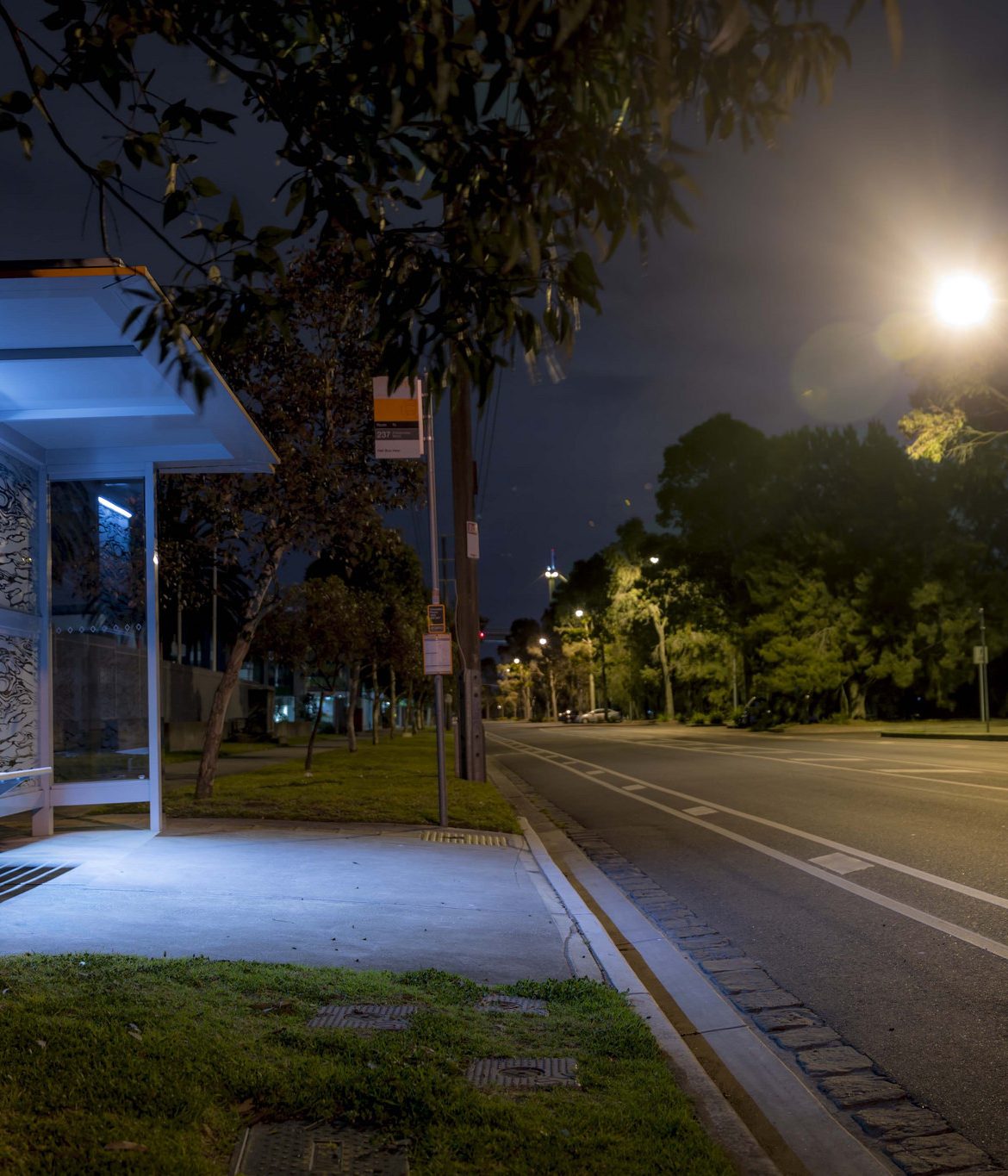
New mobility services have enormous potential to change the transportation landscape and increase access for all residents. But, only a few projects are actually focused on that. As new mobility models continue to have an impact on our transportation system and shift how our cities are designed and operate, cities and transit agencies are launching […]
Vancouver mobility pricing study reveals why pricing is such a hard sell
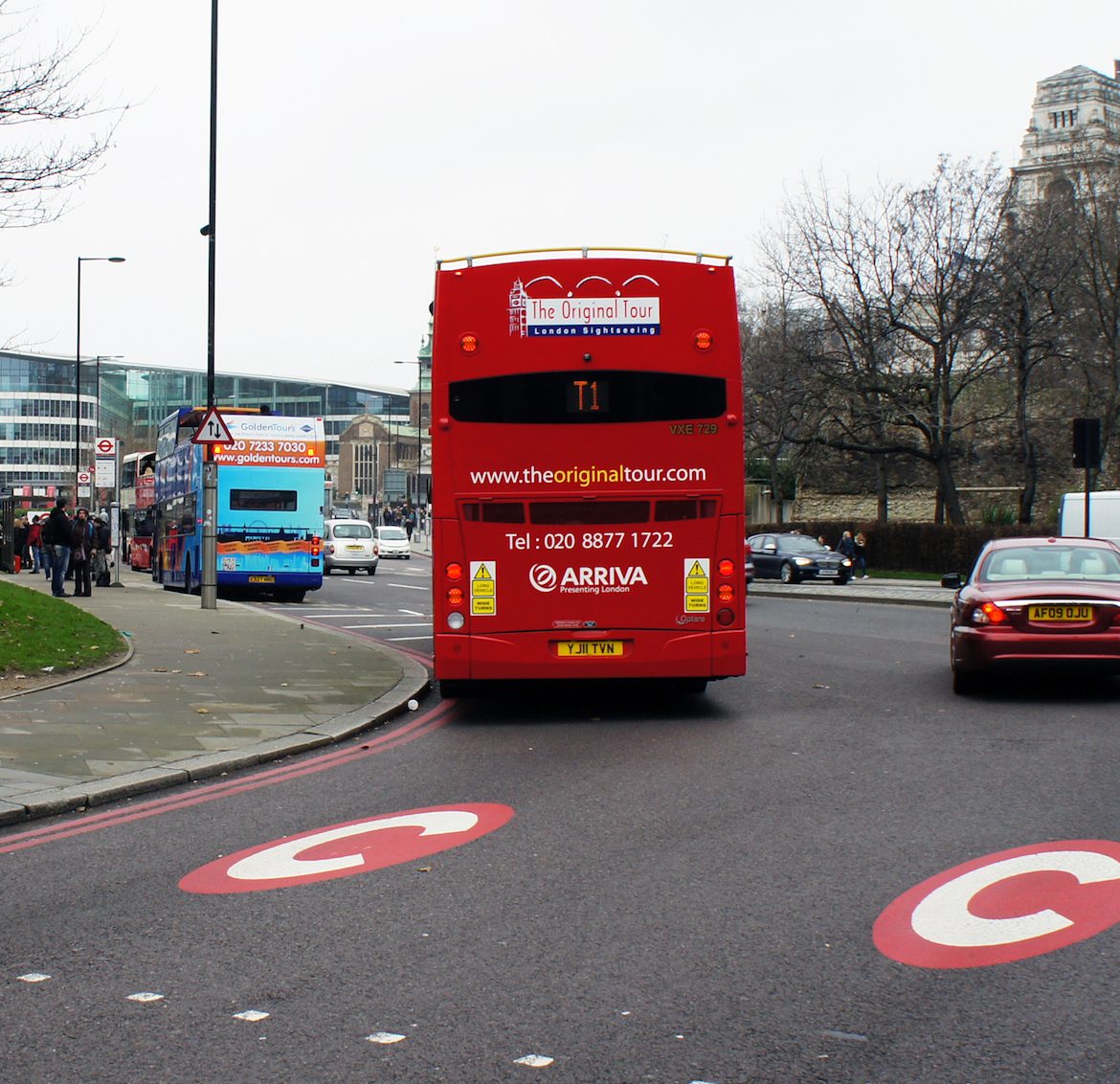
One of the main themes in this year’s Smart Cities Collaborative is how communities can price roadway and curb space as part of their strategy to achieve their long-term outcomes, such as reducing congestion, lowering emissions or shifting trips to transit or other mobility options. A recent study out of Vancouver reveals some of the […]
Setting effective data standards for new mobility providers
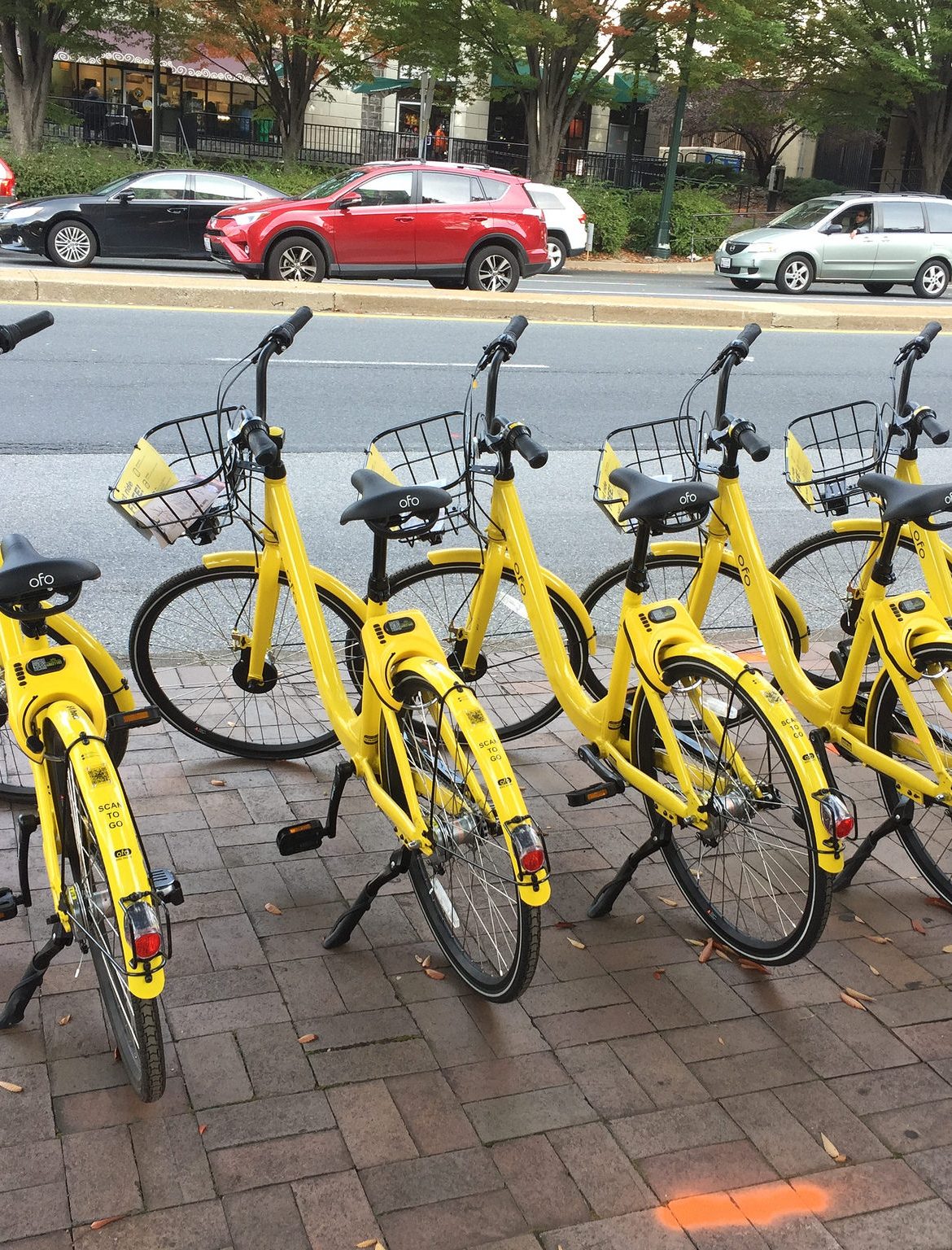
When transportation network companies like Uber and Lyft came into cities earlier this decade, they refused to share data with cities, which has presented a major challenge for cities trying to assess their impacts. As new modes such as bikeshare, microtransit, and automated vehicles enter our communities, will this happen again?
Ding, Ding! Round one of dockless scooters
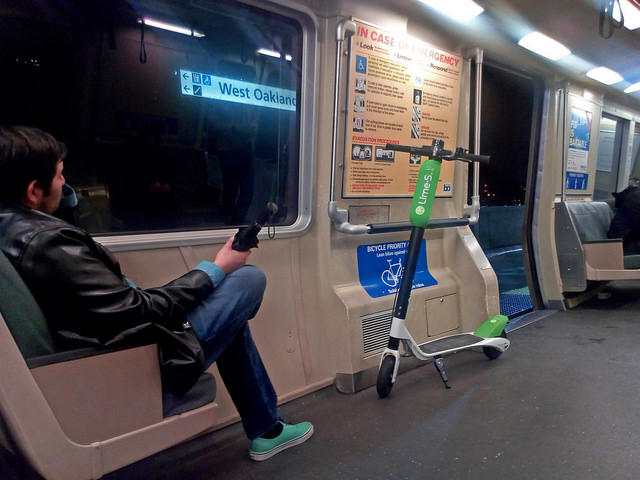
The deployment of dockless, electric scooters in cities across the country has been hectic to say the least. What’s been happening, what lessons are cities learning, and how can these systems be deployed in ways that serve the public and the cities’ goals?
Smart Cities Collaborative hits the ground running in year two

Returning in a bigger fashion than the first year with 23 cities instead of 16, our Smart Cities Collaborative picked up where we left off with the launch of year two last week in Denver, CO.
How should cities price access to their curb spaces and right-of-way?

The second year of our Smart Cities Collaborative—which launched today—will examine how emerging technologies and new mobility options are reshaping the right-of-way and curb space via four key topics. Our fourth and final post covering these topics is about how pricing strategies can be employed in service of a city’s long-term outcomes.


















